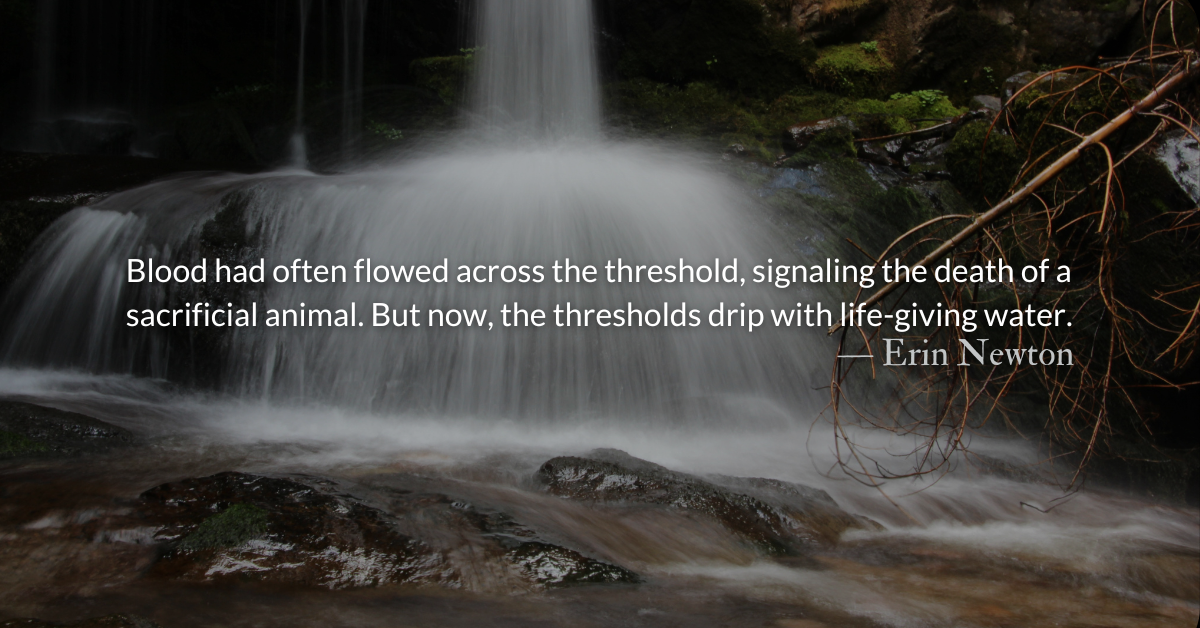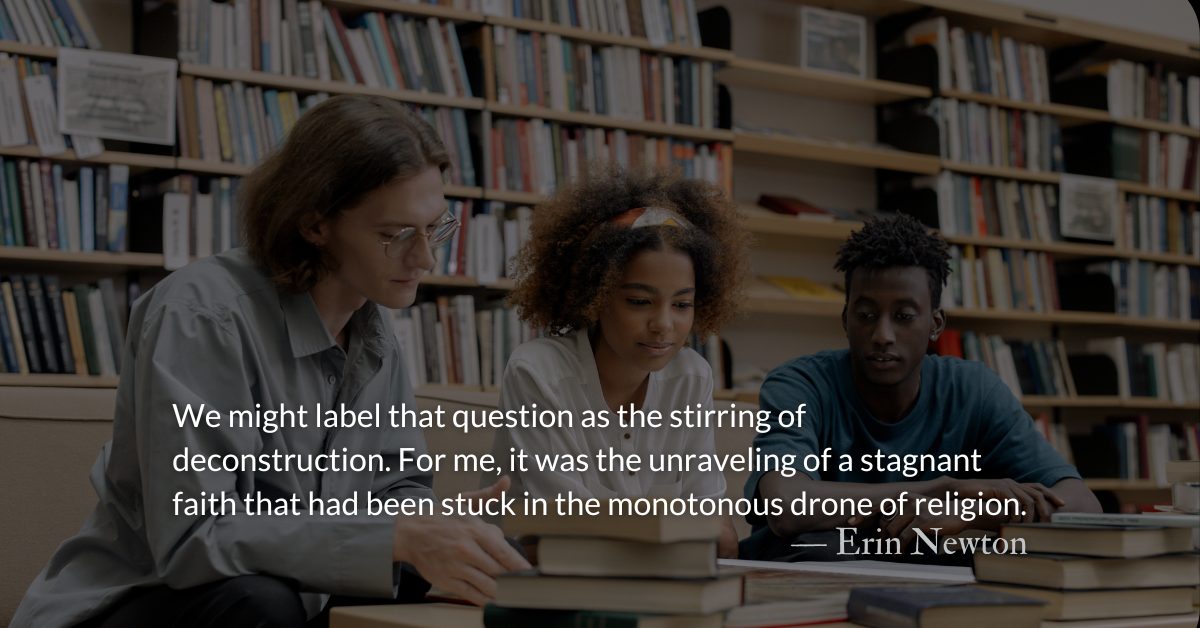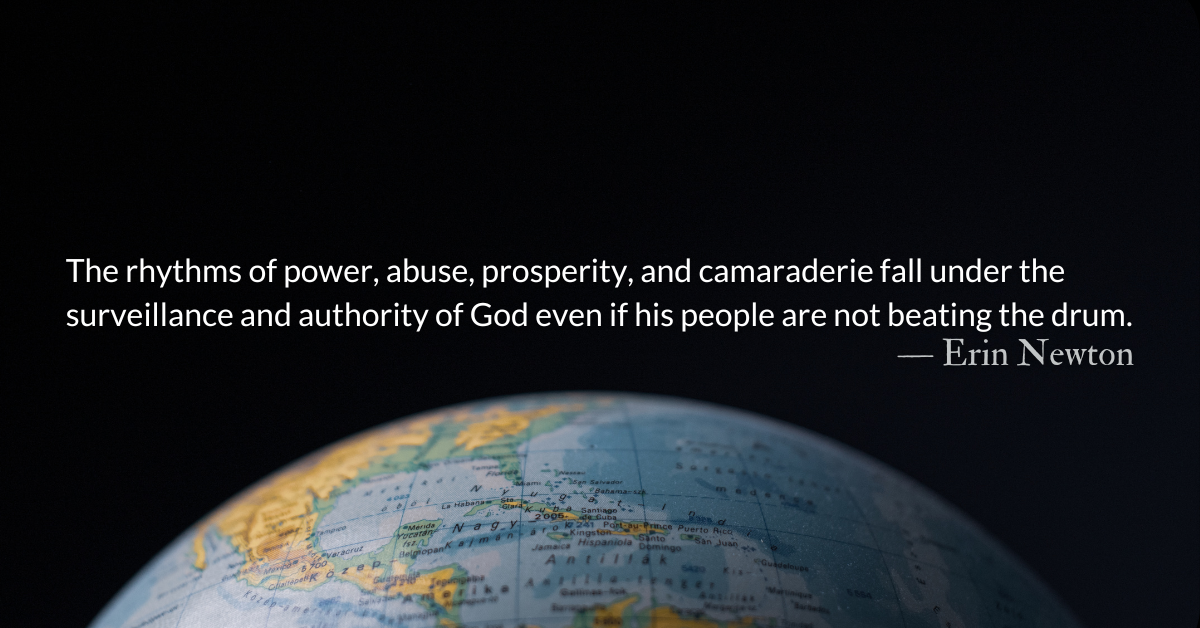Scripture Focus: Ezekiel 47:1, 12
1 The man brought me back to the entrance to the temple, and I saw water coming out from under the threshold of the temple toward the east (for the temple faced east). The water was coming down from under the south side of the temple, south of the altar.
12 Fruit trees of all kinds will grow on both banks of the river. Their leaves will not wither, nor will their fruit fail. Every month they will bear fruit, because the water from the sanctuary flows to them. Their fruit will serve for food and their leaves for healing.”
Reflection: Shall We Gather at the River?
By Erin Newton
Ezekiel’s vision of the new Temple is confusing. Scholars have spent years researching the final chapters of Ezekiel. Truly, the reality of the Temple is a research rabbit trail for another day.
Some of the features of the Temple reveal a deeper meaning of the text. One of these features is the river that flows from the Temple threshold. The prophet follows the streams as they flow deeper and deeper across the land.
On its banks are trees of all kinds. They bear fruit year-round. The leaves are a source of medicine. Where the river meets the salt water, it transforms into a fresh habitat for schools of fish. It is paradise once again.
The river flows from the place of God’s presence, the Temple. This same place where the blood of sacrificial goats, lambs, and bulls had flowed in a meager attempt to reconcile a broken relationship. Blood had often flowed across the threshold, signaling the death of a sacrificial animal. But now, the thresholds drip with life-giving water.
The river holds numerous fish of various kinds. Once, the Nile River was plagued and turned into blood, uninhabitable for any living creature. It became a place of death and brought devastation upon the people. But now, this river teems with life and fishermen will spread their nets from the shore.
The river is lined with all kinds of fruit trees that never cease to provide fruit. There was once a tree in the Garden that caused the downfall of humanity. The fruit that brought death. Fruit that broke the relationship between humanity and God, as well as humanity with itself. But now, this river feeds life-giving water to the trees that never go out of season. It is always spring, and never winter.
And when the land is divided, everyone is included. This Paradise, fed from the fruit and water of life, is divided among twelve tribes. More importantly, the foreigners are allotted land on equal footing as the chosen people. Paradise is open to all of God’s people.
Shall we gather at the river,
Where bright angel feet have trod;
With its crystal tide forever
Flowing by the throne of God?
Yes, we’ll gather at the river, The beautiful, the beautiful river…
Soon we’ll reach the shining river,
Soon our pilgrimage will cease;
Soon our happy hearts will quiver
With the melody of peace.
Divine Hours Prayer: The Request for Presence
Send out your light and your truth, that they may lead me, and bring me to your holy hill and to your dwelling;
That I may go to the altar of God, to the God of my joy and gladness; and on the harp I will give thanks to you, O God my God. — Psalm 43.3-4
– From The Divine Hours: Prayers for Summertime by Phyllis Tickle.
Today’s Readings
Ezekiel 47(Listen 4:08)
2 Timothy 2(Listen 3:17)
Read more about Christ our Temple, River, and City
Christ himself is our temple. He is the gate, the doorway, through which we enter to worship.
Read more about Hope Among the Traumatized
The living water Jesus and Ezekiel described should flow from us…a river that brings to life…











